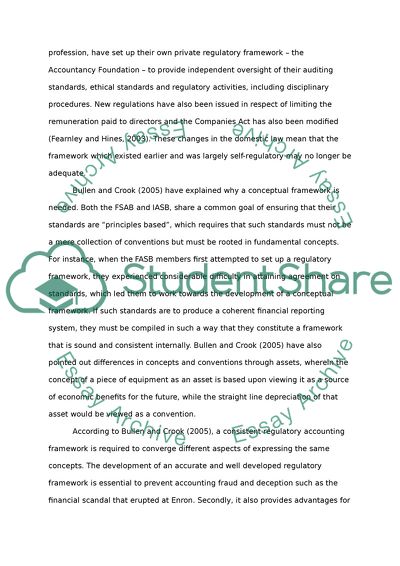Cite this document
(Regulatory Framework for Financial Reporting Literature review, n.d.)
Regulatory Framework for Financial Reporting Literature review. Retrieved from https://studentshare.org/finance-accounting/1561977-discuss-the-reasons-why-we-need-a-regulatory-framework-for-financial-reporting-what-are-the-advantages-and-disadvantages-of-making-accounting-rules-by-law-as-opposed-to-using-iasb-standards
Regulatory Framework for Financial Reporting Literature review. Retrieved from https://studentshare.org/finance-accounting/1561977-discuss-the-reasons-why-we-need-a-regulatory-framework-for-financial-reporting-what-are-the-advantages-and-disadvantages-of-making-accounting-rules-by-law-as-opposed-to-using-iasb-standards
(Regulatory Framework for Financial Reporting Literature Review)
Regulatory Framework for Financial Reporting Literature Review. https://studentshare.org/finance-accounting/1561977-discuss-the-reasons-why-we-need-a-regulatory-framework-for-financial-reporting-what-are-the-advantages-and-disadvantages-of-making-accounting-rules-by-law-as-opposed-to-using-iasb-standards.
Regulatory Framework for Financial Reporting Literature Review. https://studentshare.org/finance-accounting/1561977-discuss-the-reasons-why-we-need-a-regulatory-framework-for-financial-reporting-what-are-the-advantages-and-disadvantages-of-making-accounting-rules-by-law-as-opposed-to-using-iasb-standards.
“Regulatory Framework for Financial Reporting Literature Review”, n.d. https://studentshare.org/finance-accounting/1561977-discuss-the-reasons-why-we-need-a-regulatory-framework-for-financial-reporting-what-are-the-advantages-and-disadvantages-of-making-accounting-rules-by-law-as-opposed-to-using-iasb-standards.


